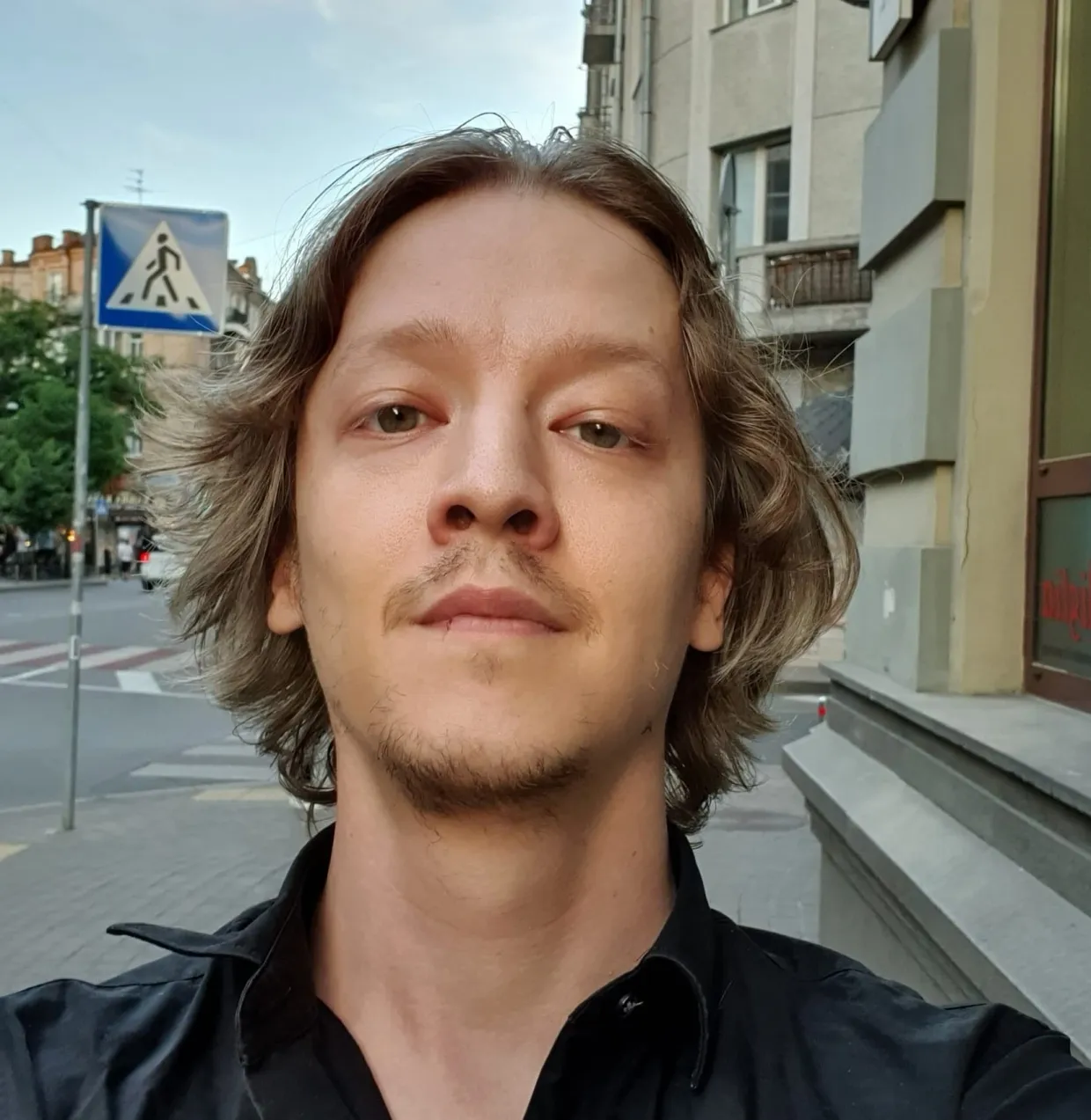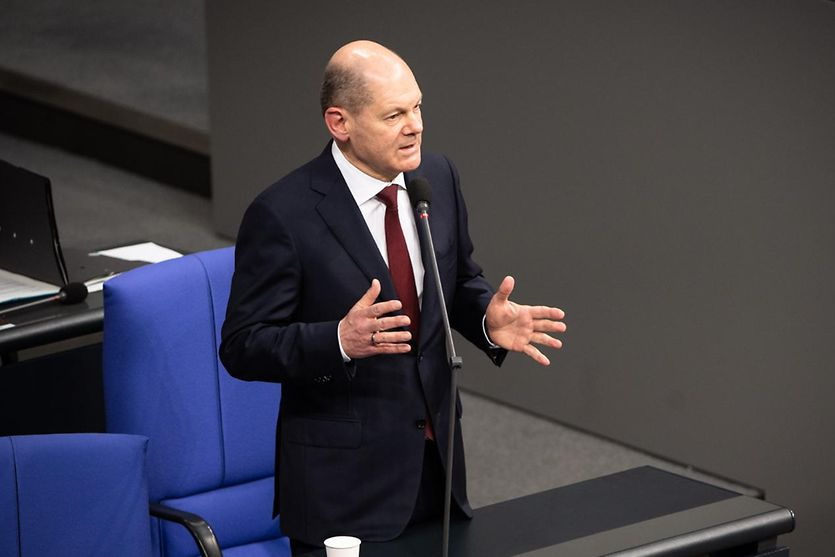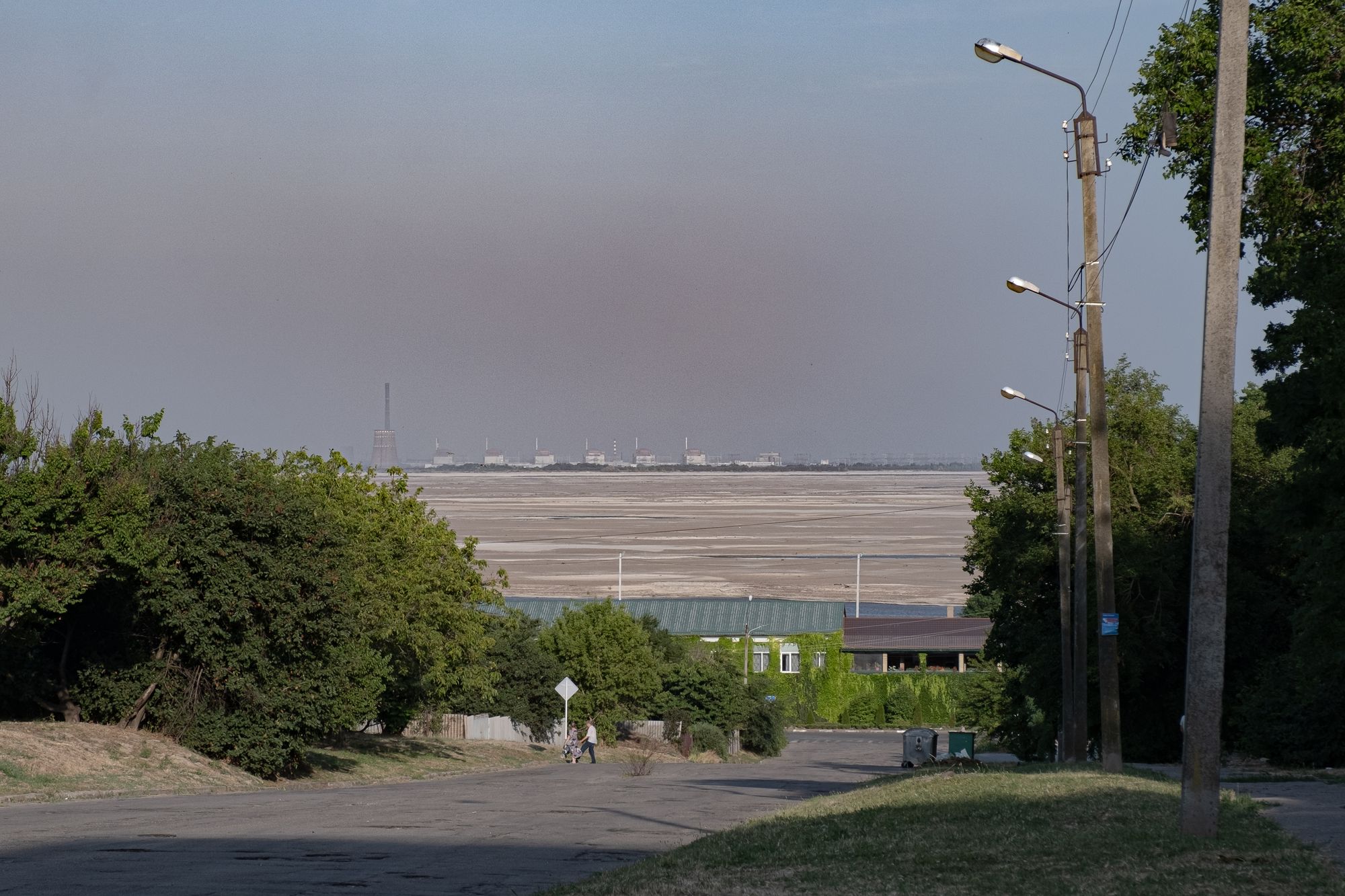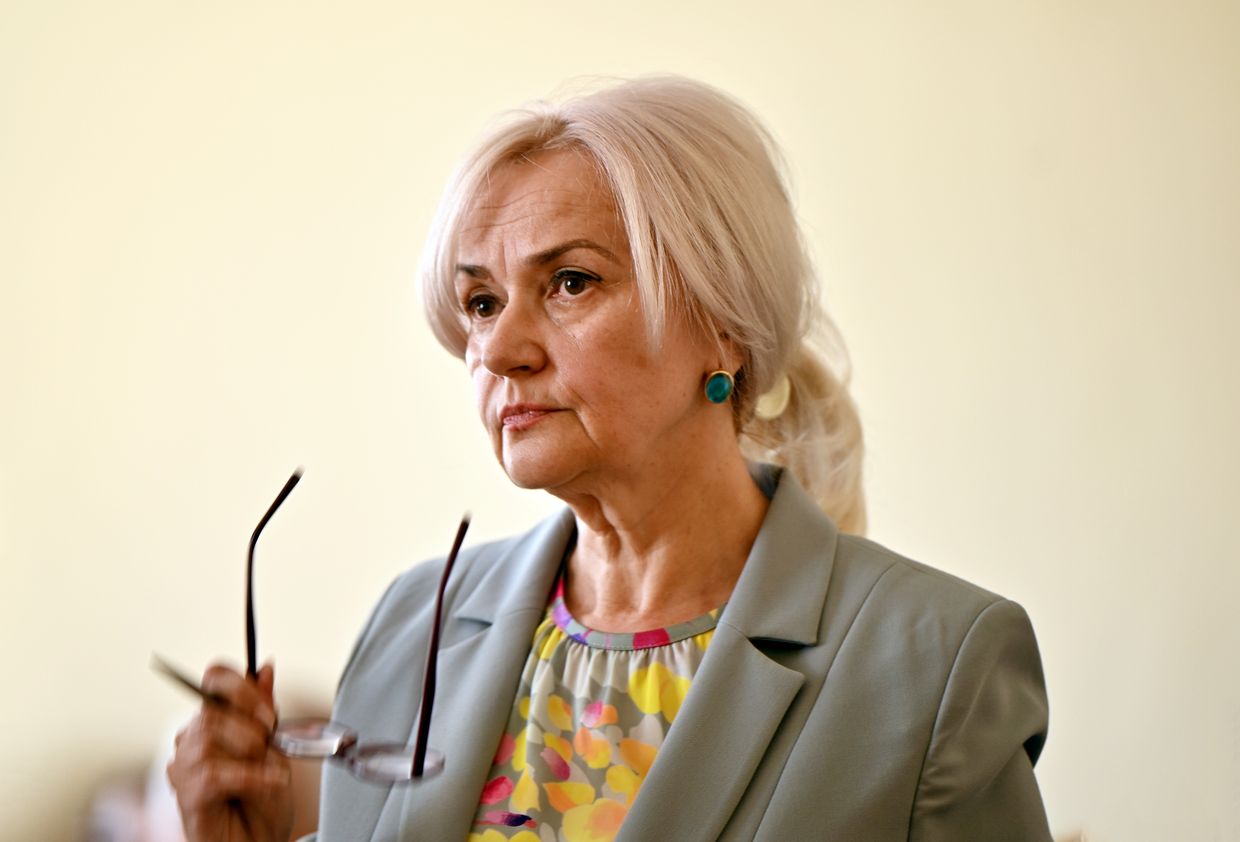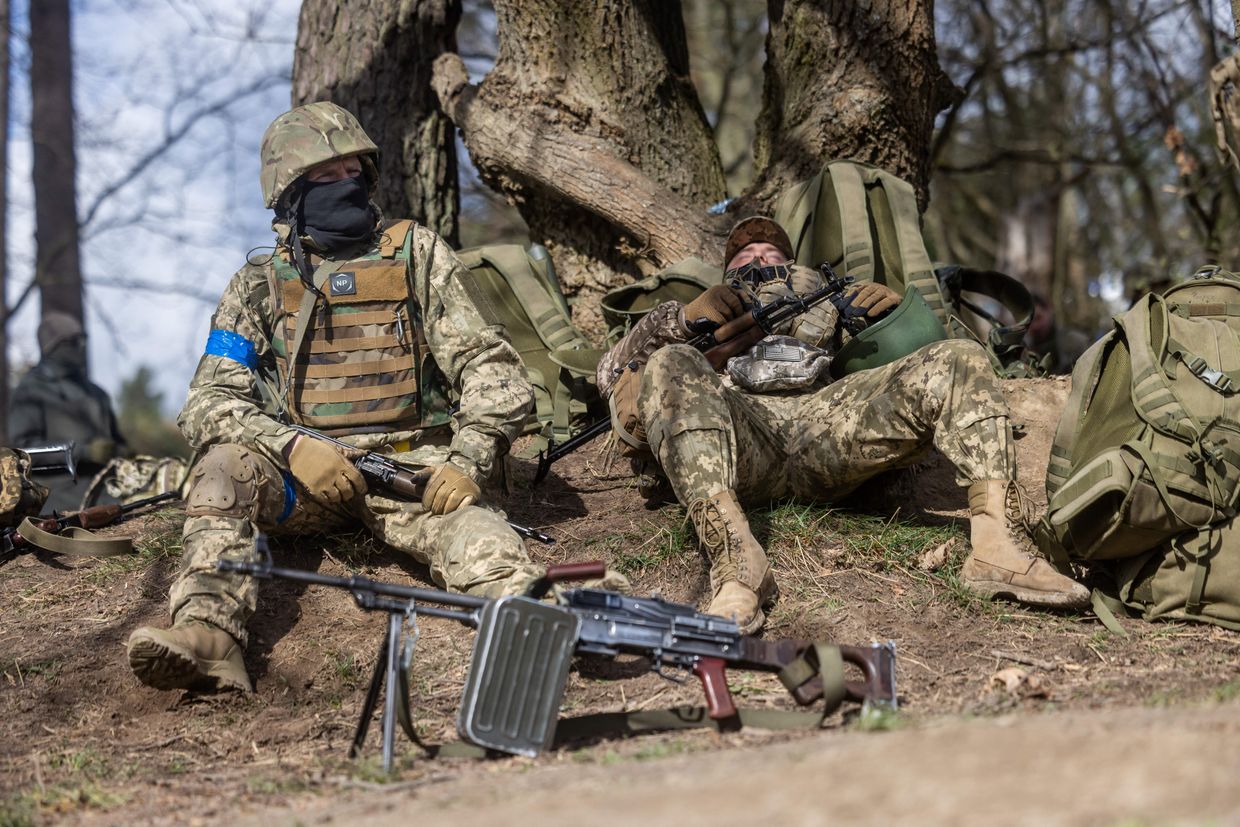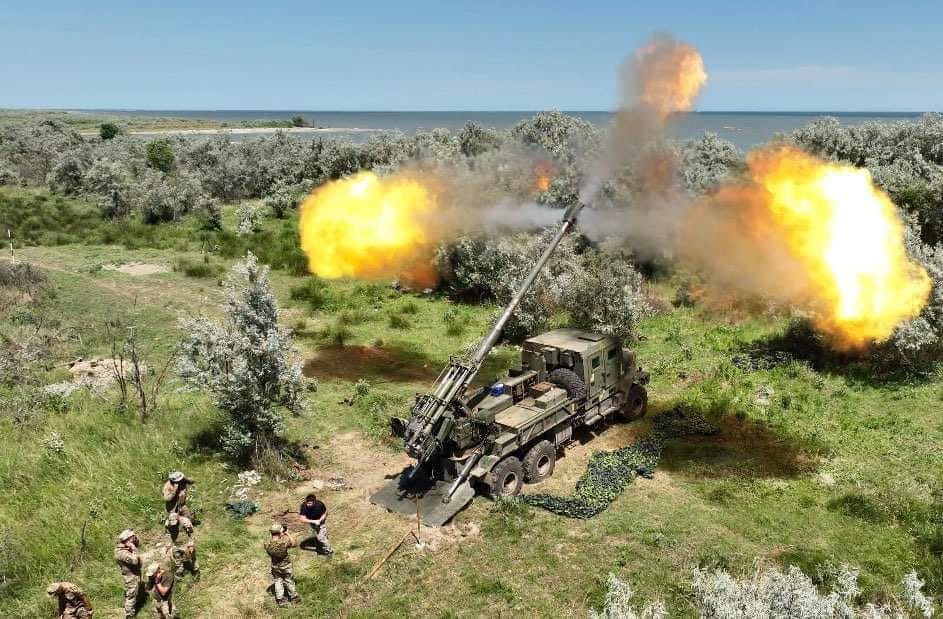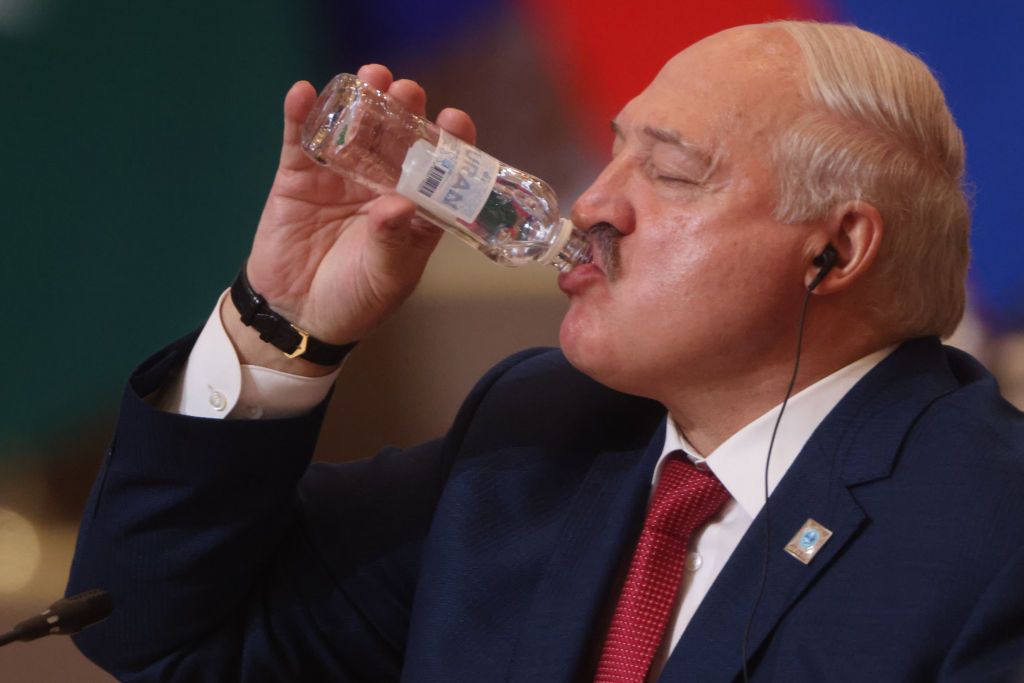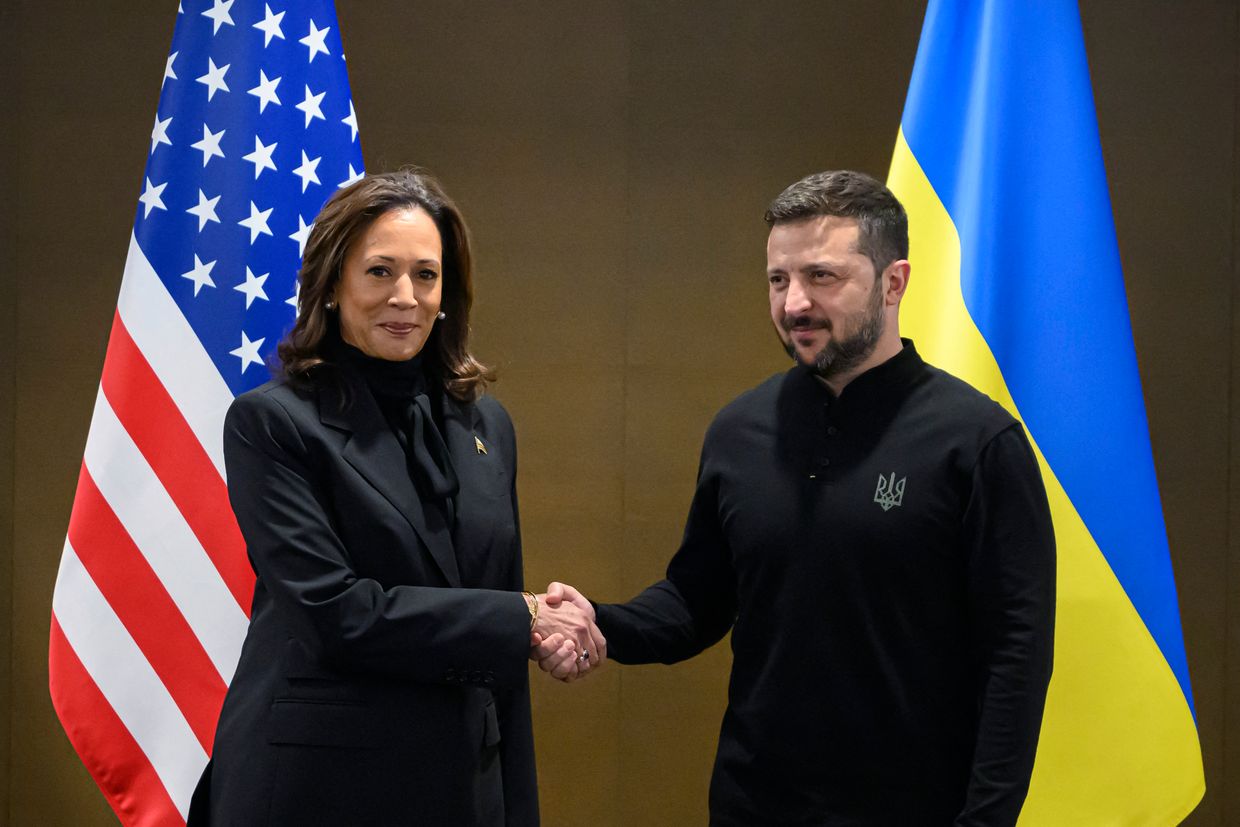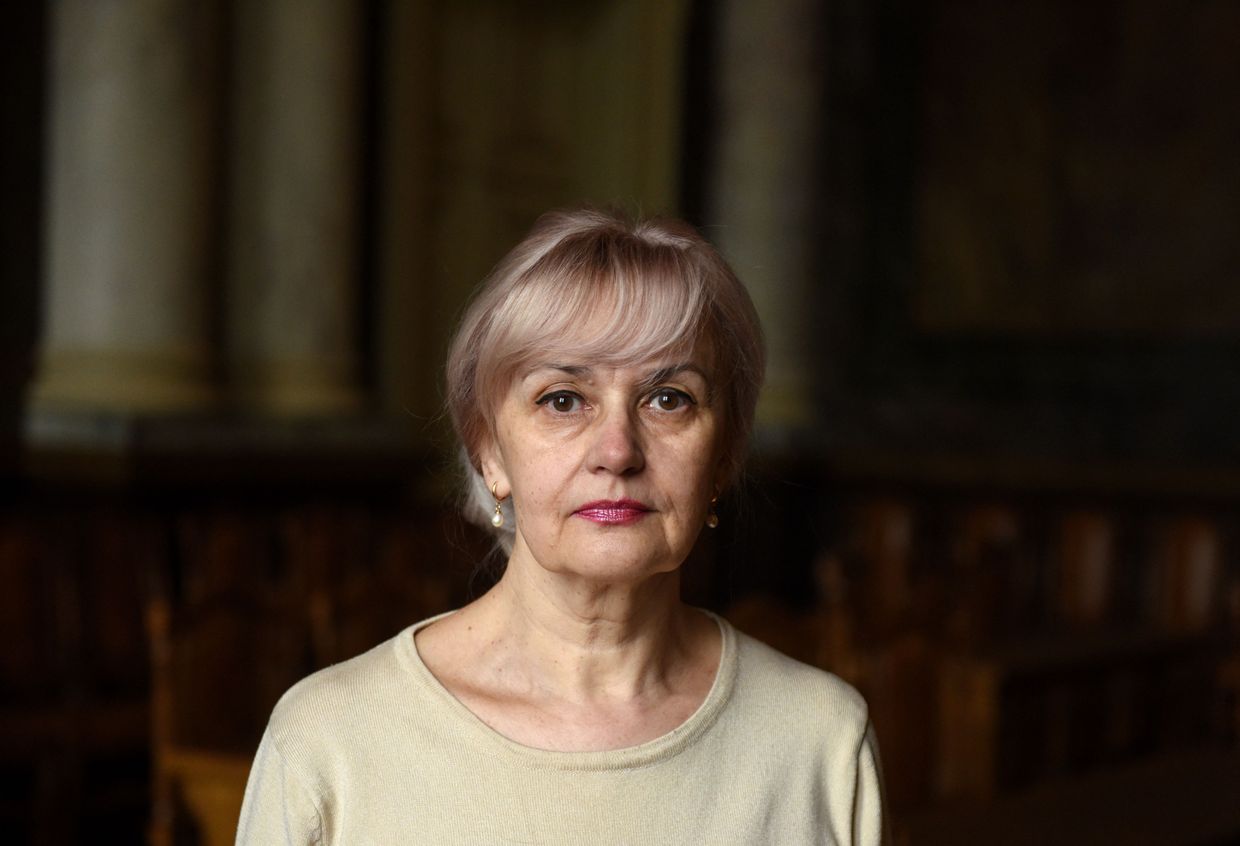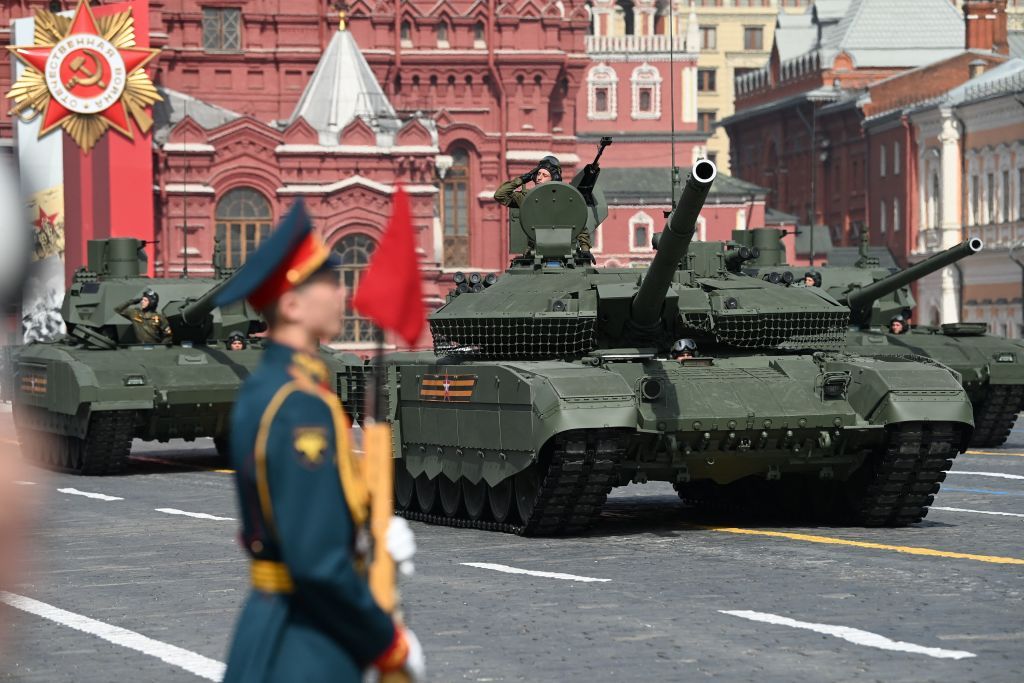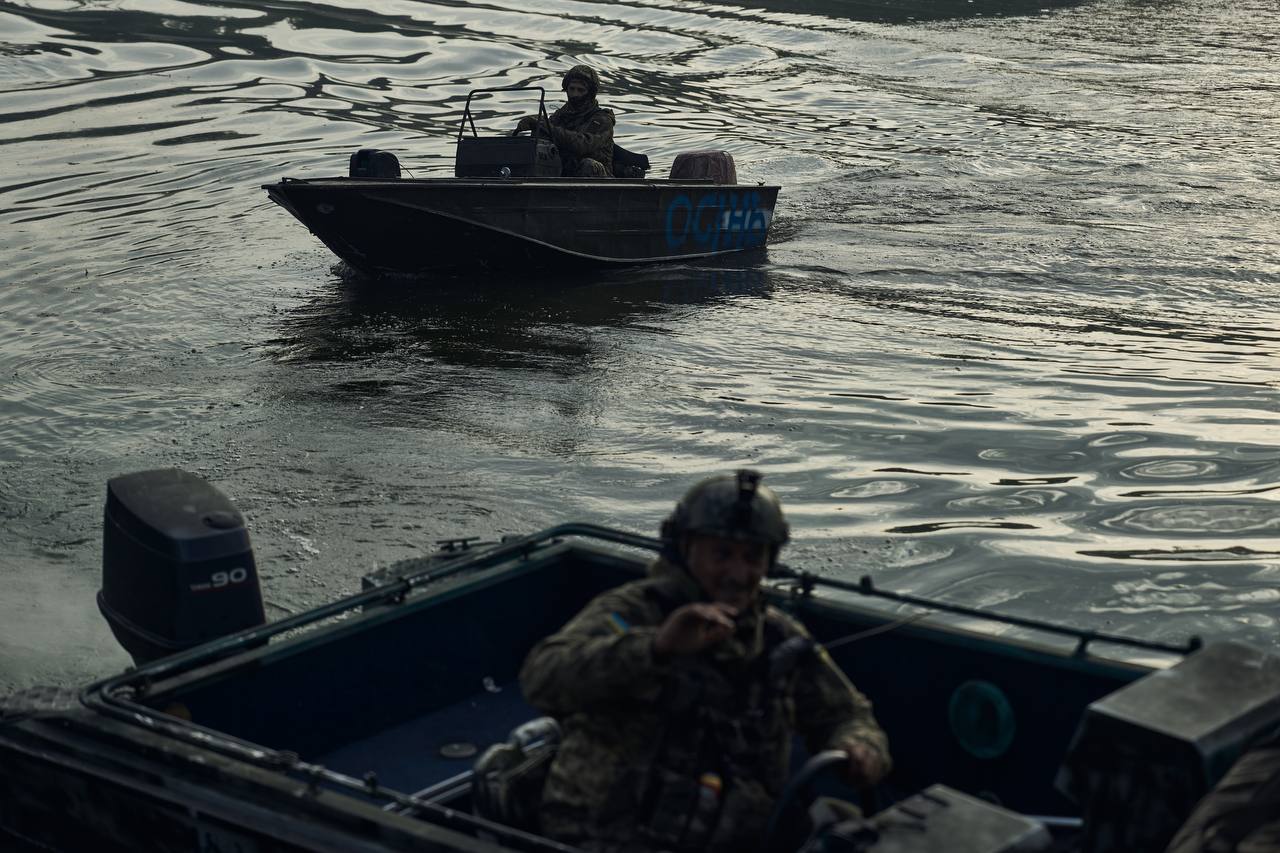As Ukraine is encircled by Russian forces, it’s relying on Western allies to send weapons or threaten Russia with extreme sanctions to hold an invasion at bay.
Many people in the German government don’t want to do either. This weakens the West’s threat of economic retaliation and emboldens Russia at a very tense moment for Europe.
"They don't want to do things that are necessary to do," said Stefan Meister, a program head at the German Council on Foreign Relations, who called it "a refusal of reality.”
As Russia pulls more and more troops from across its massive territory closer to Ukraine’s borders and into Belarus, it’s not clear what the West’s response will be, in light of this reluctance.
SWIFT
German business publication Handelsblatt cited unnamed officials on Jan. 18 in reporting that the U.S. and EU no longer consider disconnecting Russia from the SWIFT banking transaction system if it further invades Ukraine.
This was reportedly meant to avoid "destabilizing financial markets" and helping develop an alternative financial infrastructure, Bloomberg reported. Washington and Brussels are reportedly weighing targeted penalties against big Russian banks, with Germany seeking exemptions.
Gustav Gressel, a senior policy fellow at the European Council on Foreign Relations' Berlin office, told the Kyiv Independent that disconnecting Russia from SWIFT as punishment for invasion is being resisted by a faction of the Social Democrats, the biggest party within the ruling German coalition.
The expert suspects he knows the official who provided the comments to Handelblatt, which he said “is not an official position and it’s not something this official is allowed to talk about.”
According to Gressel, there is a draft of possible deep sanctions, developed in coordination with the U.S. that has not been made official or public. Green party Foreign Minister Annalena Baerbock and her ministry took part in developing it. The draft’s circulation behind closed doors in Germany may have prompted the leak about the SWIFT sanctions.
"The noise generated by the faction probably came as a reaction to this," Gressel said, adding they are "fighting a rearguard action on that." He added it's "very likely" that Germany will avoid confrontation with the Americans and side with them on sanctions — taking the U.S.'s lead was under discussion in Germany on Jan. 18.
The disconnection of SWIFT as a sanction has been under discussion for many years now, said Iulia Joja, a senior fellow on Ukraine and Georgia at the Middle East Institute, who’s lived in Germany for years. But because of the level of financial and economic interconnectedness of Germany and Russia, Germans are unsurprisingly reluctant.
Nord Stream 2
A significant number of politicians also want to keep Nord Stream 2 intact. This pipeline running under the Baltic Sea was completed in September and awaits certification from German regulators, who have said the project is not compliant with a variety of regulations. It’s meant to replace Ukraine’s overland pipes as Russia’s main hose to Europe.
German Defense Minister Christine Lamrecht said that the pipeline “shouldn’t be dragged into this conflict.” Kevin Kuhnert, the general secretary of the SPD, said international disputes are being used to “bury projects that have always been in the thorn of some people,” possibly referring to the Greens, who are also in the coalition.
“There is a strong left wing, they do not want to provoke Russia,” Meister said about the current government. “They support removing Nord Stream 2 from the whole question of Ukraine.” This is despite former Chancellor Angela Merkel’s and U.S. President Joe Biden’s agreement last year to put the pipeline’s halt on the table if Russia escalates.
Anna Borshchevskaya, a senior fellow at The Washington Institute, pointed out it was “troubling” that the German leadership doesn’t publicly appear to take a stronger position, as Nord Stream 2 is a geopolitical and not an economic project. Its critics in the U.S. and Europe said that it would increase Europe’s dependence on Russian gas and remove a major deterrent against a deeper Russian invasion of Ukraine.
Borshchevskaya added that in the German perception, direct access to Russian gas affords a certain manner of prestige, which could be lost.
When German Chancellor Olaf Scholz was asked at a Jan. 18 joint NATO press conference if he thought it wasn't naive to see Nord Stream 2 as a purely economic project, Scholz deflected the question, saying there are different views among NATO allies on Nord Stream 2 but all agree about the need to diversify the energy supply.
Gressel said that debate has intensified about Nord Stream 2 recently, as previously, many Germans “underestimated” Russia’s actions as a bluff. Now they’re waking up that this may not be a bluff and now can’t decide how far to go in response, he said.
“I sense a bit of panic mode in some factions of SPD who want to keep Nord Stream 2 alive under any circumstance, which is why they’ve been very vocal in the past few days.”
Meister said there is no agreement on what to do on Nord Stream 2 in the coalition but pressure from an angry U.S. may be enough to put the project’s halt on the table.
U.S. Secretary of State Antony Blinken said he would visit Germany on Jan. 20 to discuss the issue with his counterpart.
Weapons
Germany is also against the supply of lethal weapons to Ukraine.
Foreign Minister Dmytro Kuleba is still talking to Germany about getting weapons, he said at a joint press briefing with the visiting Baerbock on Jan. 17. Baerbock signaled that Germany is not ready to send weapons.
“She confirmed Germany’s position: We don’t want to send weapons to countries where there are armed conflicts, although that’s not true if you look at other countries,” said Mariia Koval, a European Studies Program expert with Ukrainian Prism, a Kyiv-based foreign policy think tank.
If there was any hope on the Greens for change, it hasn’t materialized. The Greens alluded in May that they would change the policy on not selling defensive weapons to Ukraine. “We saw that was not the case,” said Joja. “That was a problem.”
Baerbock also said that Germany’s unwillingness to supply lethal weapons was informed by its history. She said diplomacy must come first.
It’s not just its own weapons that Germany is reluctant to send. In December, Ukrainian officials accused Germany of blocking Ukraine’s purchase of defensive weapons through the NATO Support and Procurement Agency.
“The argument that they’re defensive weapons doesn’t help us,” since it can be argued that the weapons can be used offensively, Koval said.
Germany can’t prevent the bilateral sale of weapons to Ukraine, it can affect what the EU gives the embattled country, Joja said. While about 50 million euros have been earmarked for military aid, Germany can go in and ensure that it’s not spent on defensive weapons. “And beyond the sanctions and discourse, it really comes down to weapons,” said Joja.
Jan. 17 also saw speculation on whether Germany blocked a plane full of British weapons en route to Ukraine when a map of the plane's route going around Germany and into Ukraine surfaced on the internet. The German Defense Ministry denied this, saying there were no such applications to pass through its airspace.
Gressel says it’s bureaucratically difficult to fly over Germany with explosives on board.
Division
The issue on what to do about Ukraine has divided the SPD and the Greens but also people within both parties, according to Meister.
Experts said that while Russia is not as important as some economic partners – Gressel said it’s about as important as Hungary in terms of imports and exports – most German political parties are entangled with it in some way.
Russia also has several current and former diplomats in its employ, most famous of whom is former German Chancellor Gerhard Schröder, who is reportedly paid $350,000 annually to lobby in Europe as chairman of the board of Nord Stream AG and director of the board of Russian oil producer Rosneft.
Germany also relies on Russian gas, during a winter where this fossil fuel is both artificially scarce and supremely expensive.
The political faction that wants to leave Russia alone is large and has the support of a large part of the constituency. However, their position may be unattainable due to Germany’s position in the EU. If hardliners try to preserve Nord Stream 2 in face of an invasion, large parts of northern and eastern Europe would see Germany as a “de facto enemy,” which wouldn’t be worth it, Gressel said.
He added that Russia is emboldened as the people it talks to in Germany tend to assure it that Germany’s economic survival depends on it.
“Maybe there’s a misguided economic calculation continuing to cloud the German leaders’ judgment,” said Borshchevskaya. “We’re at an impasse with Germany.”
Joja said that what the West does will depend on the scale of any Russian actions. The West is reluctant to draw red lines, she said. On the other hand, she said it’s encouraging that Ukraine continues to be on the front pages of Western media and the U.S. stepped up with NATO, trying to drum up support.
But, Borshchevskaya said, in spite of all this, it should not be forgotten that it was Washington’s decision to waive sanctions on Nord Stream 2 last year to try to repair relations with Germany that allowed this entire situation to happen.
“It was a major concession to Russia,” she said. “This plus the Afghanistan withdrawal convinced Putin that Western credibility is low, that the West is weak and taken as a whole, it created a perception for the Kremlin to keep pushing for concessions."
Standing up to Russia requires strong leadership, especially on the part of diplomatic heavyweights like Germany.
But there is a "lack of leadership," both in Germany and in the EU, Meister said.
